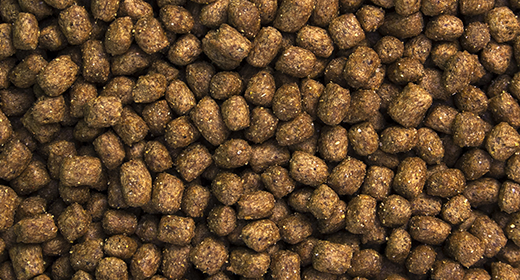

Picking the right food for your pup is key to ensuring its healthy growth. While both puppy food and adult dog food seem similar, they serve different nutritional purposes tailored to distinct life stages. Understanding this disparity is vital in guaranteeing the overall well-being of your beloved companion.
Puppies are more than just mini versions of adult dogs. Their nutritional needs are unique and crucial for their growth spurt and cognitive development. Specifically designed with the perfect blend of proteins, fats, vitamins, and minerals, puppy food supports bone and muscle growth. With their endless energy, they need the extra calories that puppy food provides. Plus, the added dose of nutrients like calcium and phosphorus is essential for strong bone development. So, stick to puppy food until your furball hits full physical maturity, ensuring a strong and healthy foundation for their adult life.
When a puppy can eat adult dog food isn't a one-size-fits-all deal. It is a gradual process that demands attention to your dog's unique traits. Generally, it is wise to make the switch when your pooch is about 80-90% of its expected adult size. But remember, a sudden change can upset their tummy.
To ease the shift, start by mixing small portions of adult food with their usual puppy fare. Over a week or two, increase the adult food ratio until your dog is entirely comfortable with the new diet. Don't forget to consult your vet to ensure a smooth transition and a lifelong, balanced diet for your four-legged friend.
When figuring out when to transfer to adult dog food, the size of your growing dog plays a crucial role. Given below is a comprehensive guide:
At IAMS, we offer a range of adult dog food that are rich in nutrients like protein, vitamins, minerals and more to provide your pooch with a complete and balanced meal. We have specialised recipes for each breed, targeting the specific nutritional needs of small, medium, and large sized dogs.
As your canine companion transitions from the puppy stage to adulthood, providing it with an appropriate diet becomes crucial for its long-term health and well-being. Adult dog food serves as a vital component in ensuring that your dog receives the necessary nutrients to maintain optimal health and vitality. Here are some key reasons why adult dog food is essential for your furry friend's overall wellness:
So, as your dog grows, make sure its diet grows as well. With the right adult dog food, tailored to its needs, you are laying the foundation for a life full of tail wags and playful barks.
Transitioning your furry friend from puppy to adult dog food is not just about changing what is in the bowl; it is a gradual adjustment that involves considering evolving nutritional needs, portion sizes, meal frequencies, and more. Here is a structured guide to help you ease your pup into their new diet over a 10-day period:
Start by mixing 75% of the puppy food with 25% of the new adult dog food. This allows your pup to get accustomed to the new flavours and textures while maintaining some familiarity with the old food.
Increase the proportion of adult dog food to 50% while decreasing the puppy food to 50%. This step continues the gradual transition, helping your dog's digestive system adapt to the new food without causing any sudden upsets.
Continue the transition by serving 75% of the new adult dog food mixed with 25% of the remaining puppy food. This step allows their taste buds to fully adjust to the new diet while ensuring a smooth transition without any digestive disturbances.
By this point, your pup should be ready to completely switch to adult dog food. Serve only the new adult dog food, ensuring that the portion size is appropriate for its age, size, and activity level. Maintain the recommended feeding schedule based on specific dietary needs.
Throughout the transition period, closely monitor your dog's eating habits, energy levels, and overall well-being. If you notice any digestive issues or reluctance to eat, slow down the process and give it more time to adjust. Providing plenty of fresh water and sticking to a consistent feeding schedule will help make the transition as smooth as possible for your beloved canine companion.
Remember, a smooth transition from puppy to adult dog food is all about taking it slow and steady. By gradually introducing the new food over a 10-day period, you give your pup's digestive system the time it needs to adjust without causing any discomfort. Keep a close eye on its response throughout the process, and do not hesitate to make adjustments if necessary. With patience and careful monitoring, you can ensure that your loyal companion makes a seamless shift to their new, adult-dog-friendly diet.
Puppies should not eat adult dog food as it lacks essential nutrients for their growth. Choose puppy-specific food until adulthood.
A 5-month-old puppy should eat high-quality puppy food rich in protein and essential nutrients, promoting healthy growth and development.
Dogs are typically considered puppies from birth to one year, although this can vary based on breed size.
The right age to switch your pooch from puppy food to adult dog food can vary basis multiple factors. However, here’s how these furry beings are generally switched to adult dog food basis their breed size.
Breed Size | Age |
Small | 9 to 12 months old |
Medium | 10 to 12 months old |
Large | 12 to 16 months old |
Giant | 18 to 24 months old |


Welcome to our pet care blog, where we delve into the intricacies of fostering the well-being of our four-legged friends. In this edition, we shine a spotlight on a fundamental aspect of puppy care—nutrition. As conscientious pet owners, understanding the role of vitamins in the early stages of a puppy's life is essential for promoting robust health and vitality. In this blog, we study the key nutrients that contribute to the overall development of our furry companions.
During the crucial phases of growth and development, puppies have distinct nutritional needs, and vitamins play a pivotal role in ensuring they thrive. If you are looking for vitamins for puppies in the Philippines, IAMS has you covered with some of the best puppy vitamins in their range of dog supplements.
From supporting bone formation to bolstering their immune systems, each puppy multivitamin contributes uniquely to a puppy’s well-being. A well-balanced diet is paramount for setting the stage for a lifetime of happiness and vitality. Next, let us uncover the essential components that will help you make informed choices to ensure your puppy receives the nutrients necessary for a healthy and vibrant start to life.
Puppy vitamins are essential for the health and development of puppies, just as they are for humans. While a balanced diet is crucial, factors such as rapid growth and specific life stages may necessitate additional vitamin support. In the following section, we will explore the importance of vitamins tailored to the unique needs of puppies, examining how these nutrients contribute to their overall well-being. Understanding the role of vitamins in a puppy's diet can guide pet owners in providing the best possible start for their young companions.
Ensuring your puppy gets the right vitamins is not just about being a nutrition expert, it is about setting the stage for a life filled with tail wags and playful antics. From bone development to a glossy coat, these little powerhouses contribute to your pup's well-being in a big way. Below is a break down the perks with a quick list of pointers that highlight how vitamins can make your puppy's world a whole lot brighter:
Essential vitamins, such as vitamin D and calcium, play a pivotal role in bone development, ensuring that puppies develop strong and healthy skeletal structures during their rapid growth phases. Proper bone formation not only supports their current well-being but lays the groundwork for a lifetime of agility and mobility.
Vitamins like vitamin C and vitamin E contribute to a robust immune system, helping puppies defend against infections and illnesses as they encounter new environments and experiences. A strengthened immune system provides a crucial defence mechanism, aiding in the puppy's ability to adapt and thrive.
B vitamins, particularly B12 and folate, are crucial for neurological development. These vitamins support cognitive function, aiding in the formation of a puppy's developing brain and nervous system. An enriched cognitive foundation sets the stage for improved learning, memory, and overall mental acuity.
Vitamins A and E are essential for maintaining healthy skin and a glossy coat. These vitamins contribute to skin cell integrity and help prevent issues such as dryness and flakiness. A radiant coat not only enhances a puppy's appearance but is indicative of their overall health.
B-complex vitamins, including B1, B2, and B6, are vital for energy metabolism. They help convert food into energy, ensuring that puppies have the stamina and vitality needed for their playful and active lifestyles. A well-regulated energy metabolism supports sustained playfulness and optimal physical activity levels.
Vitamins A and C are critical for maintaining good eyesight. The best puppy vitamins contribute to the health of the eyes and can prevent issues related to vision as puppies grow. Clear and healthy vision is essential for puppies as they explore their surroundings, promoting confidence and safety in their environment.
Adequate vitamin intake supports the overall health and vitality of puppies, promoting a strong foundation for a lifetime of well-being. A balanced vitamin profile ensures that puppies can thrive and enjoy a high quality of life from their early stages onward, setting the stage for a happy and healthy companionship.
Puppy vitamins are like the superheroes of a puppy's well-being. From building strong bones to giving their immune system a boost, these little nutrients play a big role in keeping our furballs healthy and happy.
So, the next time you are picking up doggy treats or deciding on their dinner, remember the power of those vitamins, because a well-fed puppy is a puppy ready for all the belly rubs and adventures you can throw its way.